|
During these turbulent times we must remind ourselves repeatedly that life goes on.
This we are apt to forget. The wisdom of life transcends our wisdoms; the purpose of life outlasts our purposes; the process of life cushions our processes. The mass attack of disillusion and despair, distilled out of the collapse of hope, has so invaded our thoughts that what we know to be true and valid seems unreal and ephemeral. There seems to be little energy left for aught but futility. This is the great deception. By it whole peoples have gone down to oblivion without the will to affirm the great and permanent strength of the clean and the commonplace. Let us not be deceived. It is just as important as ever to attend to the little graces by which the dignity of our lives is maintained and sustained. Birds still sing; the stars continue to cast their gentle gleam over the desolation of the battlefields, and the heart is still inspired by the kind word and the gracious deed. There is no need to fear evil. There is every need to understand what it does, how it operates in the world, what it draws upon to sustain itself. We must not shrink from the knowledge of the evilness of evil. Over and over we must know that the real target of evil is not destruction of the body, the reduction to rubble of cities; the real target of evil is to corrupt the spirit of man and to give his soul the contagion of inner disintegration. When this happens, there is nothing left, the very citadel of man is captured and laid waste. Therefore the evil in the world around us must not be allowed to move from without to within. This would be to be overcome by evil. To drink in the beauty that is within reach, to clothe one’s life with simple deeds of kindness, to keep alive a sensitiveness to the movement of the spirit of God in the quietness of the human heart and in the workings of the human mind-- this is as always the ultimate answer to the great deception. Excerpted from Meditations of the Heart by Howard Thurman, published by Beacon Press, 1953. _____________________________________________ The words of this spiritual mentor of Martin Luther King, Jr., can still offer us wisdom during times of rising anger and increasing hopelessness. We often reflect on the writing of Howard Thurman in Wisdom Tree Collective’s School of Spiritual Direction. He was a civil rights leader, a theologian, author, academic, and pastor who was a mystic at heart, finding solace in nature—a favorite oak tree was a spiritual friend, a nonhuman elder & mentor. Thurman also co-founded the Church for the Fellowship of All Peoples in San Francisco, the first racially integrated, intercultural church in the United States, which also valued the creative arts as a way of sharing the Good News. He was familiar with suffering. Let his words speak to your soul today. Read more of his wisdom in his book Meditations of the Heart. 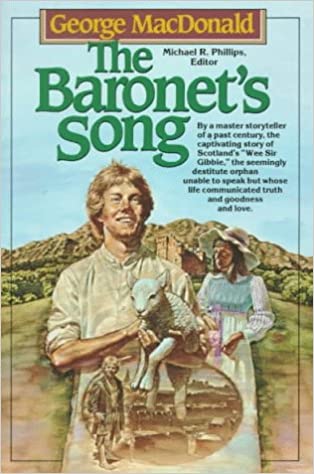 Years ago, I read George MacDonald’s 1879 novel, The Baronet's Song (also titled, Wee Sir Gibbie). It’s about a young, mute, Scottish boy raised, then orphaned, by an abusive, alcoholic father. Gibbie finally ends up being adopted by an elderly couple and the old woman, Janet, becomes a mentor to the pure-in-heart boy. Seeing the face of Jesus in him, she teaches him everything she has ever loved about Jesus (which was very different than the hellfire and brimstone being preached in the churches!). Writes MacDonald, "So teaching him only that which she loved, not that which she had been taught, Janet read to Gibbie of Jesus and talked to him of Jesus, until at length his whole soul was filled with the Man, of His doings, of His words, of His thoughts, of His life. Almost before he knew, he was trying to fashion his life after the Master. Janet had no inclination to trouble her own head, or Gibbie's heart, with what men call the plan of salvation. It was enough to her to find that he followed her Master." Prayers of salvation and baptism (so he would not go to hell) were of no concern to Janet. She simply shared with him the life of the One who taught her how to walk in the way that leads to Life. I finished that novel and began reading more novels of George MacDonald's, The Curate's Awakening, The Musician's Quest, The Lady's Confession, The Poet's Homecoming, The Fisherman's Lady, The Marquis' Secret and more...amazed at the way his characters experienced and trusted in (& their lives reflected) an unrelentingly kind and tender God. Each time I would say to myself, "I want to trust God and speak of Jesus in that way." And slowly like Janet had done for Gibbie, George MacDonald did for me. Sometimes what we have been taught or picked up on in regard to salvation does not lead to the freedom or life of which Jesus spoke. It does not cause the heart to long to know and trust that God more. Says Meister Eckhart in Daniel Ladinsky's Love Poems from God, "How long will grown men and women in this world When you think of God, does the image that comes to your mind make you sad or fearful?
Or is it an image your heart dearly loves? If you prayed the prayer of salvation or were baptized, what was that like for you? What motivated you to do so? A welcome into and communal acknowledgement of following Jesus on the path of Life? Or wanting to be saved from hell and eternal punishment? If both rituals initiated you into living a life of Love, I am so very glad for you (my baptism was very meaningful to me). But if either were fear-motivated, perhaps it is time to recognize any grasp it still has on you, especially if fear-based theology continues hissing in your ear. Stories around salvation and baptism reverberate throughout one's life, for better or for worse. And fear-based theology can offer nothing (no matter how convincing!) but fear-based lenses to view one's self and the world. Maybe it's time for a trip to the library to spend time with George MacDonald's characters. Maybe it's time to come to Spiritual Direction and experience the God of Wee Sir Gibbie. Maybe it's time to pick up your crayon and draw a different image in your coloring book. What do the Coronavirus and the Reign of Love Have in Common?: A Facebook Post from June 27th7/7/2020
Facebook's "what's on your mind?" prompt has been taunting me, so here's what's on my mind. It begins with a conversation...
“You know what’s strange? Most people I see who aren’t wearing masks are Christians,” a friend who was standing over 6 feet away said to me. We both shook our heads. Interconnected. That’s what we are with everyone & everything. In not recognizing it, we are what the prophets lamented, “foolish and senseless people who have eyes but do not see, ears but do not hear.” Which leads to little understanding of how God is present and at work in our world. After all, one way Jesus described the Kingdom of God is “like yeast that a woman took and mixed into about sixty pounds of flour until it worked all through the dough" (he also used the image of yeast to describe leaders’ hypocrisy). The Reign of Love, like coronavirus, spreads in hidden ways. We had Thanksgiving dinner at my brother-in-law’s parents’ home this past year. They live less than 5 miles away. Both were diagnosed with COVID-19. His dad died this week. My husband’s grandma was diagnosed with COVID-19 this week, too. And we await the test results of a dear friend as to whether or not he has COVID-19. The politicization of COVID-19 and seeing people not taking it seriously infuriates me. I can’t help but think of words found in Deuteronomy 30, “I have set before you life and death, blessings and curses. Choose life that you and your descendants may live.” The “you” being addressed is an entire nation of people. A nation is made of many individual “yous.” So the choice is both personal and communal, they’re interconnected. And they also impact not only those we see right here, right now, but generations to come (we’re seeing this truth with our nation’s racial injustice crying out to be healed). Granted, the choice doesn’t always look or feel like life at the time. The path of/toward Life often does not. In the middle of May, we decided that until the virus’ spread trended downward for 2 weeks or we could assure social-distancing measures, we needed to do our best (knowing we wouldn’t do it perfectly) to “love our neighbor as ourselves.” So we cancelled our vacation and we have not let Alex play on his travel baseball team (the latter decision harder than the former). Does it make any difference? We don’t know. But those are a couple of ways our family has and continues to choose Life. Given our awareness of our interconnectivity to everything and everyone else, including all of you, we can do no less. 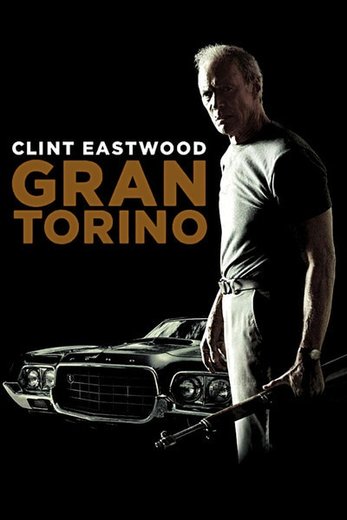 Image found at www.rogerebert.com/reviews/gran-torino-2008 Image found at www.rogerebert.com/reviews/gran-torino-2008 Good Friday is coming in a few weeks and with it, some theology I simply cannot stand anymore. It's found in many worship songs like Jesus Paid it All, In Christ Alone, One Thing Remains (Your Love Never Fails) and more. It's called substitutionary atonement or penal substitution in theological language. And it's heard so often, you might even think it's the only show in town when it comes to explanations and understandings of the cross. Richard Rohr, writes in Eager to Love: The Alternative Way of Francis of Assisi, “For the sake of simplicity and brevity here, let me say that the common Christian reading of the Bible is that Jesus 'died for our sins'— either to pay a debt to the devil (common in the first millennium) or to pay a debt to God the Father (proposed by Anselm of Canterbury [1033–1109] and has often been called 'the most unfortunately successful piece of theology ever written')..." I could not agree more. No matter how sweet sounding the music, the image of God portrayed by such lyrics is a petty, powerless and/or blood-thirsty tyrant requiring some kind of payment or transaction before those He's created can be forgiven, loved, and rescued from eternal damnation. There are lots of problems with this theory. One major problem is that if we read the Hebrew Scriptures, like the Psalms and Prophets, we discover a long-suffering God who was forgiving and willing to forgive long before the cross occurred. Rather than a belief that Jesus' death on the cross was necessary to change God's mind about us, we can see how Jesus' life and death invited us to change our minds about God. Jesus was simply following in his Father's footsteps of relentless, sacrificial love. I have a problem with lyrics and theology that proclaim the opposite. Given this theology is taught through song and sermon in many churches (I taught it years ago as a youth pastor!), we're not apt to actually stop and think through it ourselves. It took me a while to admit that something seemed "off." There would be songs that seemed fine up until the "wrath" or "debt paid" lyrics showed up affecting the whole song. As I questioned this dominant cultural voice in American Christianity, I realized there were others experiencing the same internal dissonance. I also discovered there were other views about the crucifixion (always have been) besides substitutionary atonement. And that one no longer represents my viewpoint... The movie, Gran Torino, on the other hand does. Spoiler alert, if you haven't seen it and want to, you may want to stop reading, go watch it and come back later. And be aware, there's violence (although let's be honest, there has to be if drawing any kind of connection between it and Good Friday). Back to the movie, I did not see it coming, the ending of Gran Torino. In fact, I imagine I got a taste of being stunned the way the disciples might have been stunned on that Good Friday long ago...they simply never saw it coming. Yet the Gospels tell us Jesus did (and so did Clint Eastwood). If you saw the movie but cannot remember the ending, go check out a Youtube clip of the end. The final scene is so rich in symbolism, I'm not even going to get into all of it (plus it would take away from your own disturbances and observations). All I know is that Gran Torino gave a pretty good glimpse of my view of Jesus' death on the cross in less than 5 minutes. A quick overview of the movie...gruff Walt Kowalski (played by Clint Eastwood) is a recently widowed Korean vet. He's fairly estranged from his own family when he gets drawn into the drama of his Hmong neighbors. Young Thao tries to steal Kowalski's Gran Torino after being pressured by his cousin to join the neighborhood gang. You know that Eastwood is not going to let that happen! This event leads to Kowalski developing a relationship with the family and getting an inside look at the cycle of violence and poverty experienced by the Asian community in his neighborhood. He sees how his well-intentioned advice to Thao to get a decent job and stay away from the gangs simply doesn't work, no matter how hard Thao tries, he and his sister cannot escape the brutality and injustice. It requires something more to liberate Thao and his sister. And that's where we start seeing Kowalski's single-minded intensity and there's no mistaking he is planning something. What he's planning, we have no idea. Although we know something is about to take place when one night he shows up at the house where the gang members hang out and begins to yell in order to provoke them. One by one they come out with guns drawn. We're expecting "an eye for an eye" moment thinking Eastwood will whip out a gun and give them the justice they deserve by picking them off all in a row. What we're not expecting from the foul-mouthed Kowalski is "Greater love hath no man than this, that a man lay down his life for his friends." (John 15:13) And yet he does. And on purpose. His stunning and creative act of solidarity and sacrifice releases Thao and his sister from the cycle of violence. They were "saved" by his blood. In a perfect world, the prison system would reform the perpetrators and they'd be "saved by his blood," too. It's not a perfect world and Walt doesn't rise again in three days, so there's only so far the comparisons can go but I think it's worth noting the image of Christ found in Walt's sacrifice. First, let's admit that Walt himself could be a stumbling block for some. In which case, I ask us to ponder what one who "walks in the way that leads to Life" really looks like. Is it being a nice, moral citizen who tries to avoid or point out sin (but can have a habit of ignoring the cycles of violence and systemic injustice in his own "neighborhood")? Or might one resemble Walt, a crass, politically incorrect "sinner" who not only notices the violence and injustice, but steps into a Christ-like path which will set his neighborhood free? Setting his face like flint, he walks right onto that sidewalk for an act of love which will rescue his neighbors from being held captive by a cycle of violence they are powerless against. Sound familiar? Jesus knew his message would provoke the authorities. He knew that such ire would inevitably turn him into a scapegoat (a person or people group on whom we unfairly pour out our wrath, making them "pay"). He knew it is human nature to look for a scapegoat. So much so, it becomes a religious necessity for nearly every culture (some even beating literal goats to death as the name suggests)! One can see how Jesus' bold message about what to do with friends and enemies does not fit, but in fact destroys both the necessity for and violent cycle of sinful and superstitious scapegoating. Bigger isn't better in Jesus' view (even when it comes to God). Being the stronger bully or in the bully's gang never leads to the kind of life Jesus invites, it only adds fuel to the cycle of vengeance. However, many Christians have no problem with this because the image of God passionately sung about is a fickle, vengeful one (and remember, we become like the God we worship). Plus if we agree that Jesus paid it all, we're safely on the winning side. However, in the cycle of violence, there is no winning side. In a stunning reversal of what we would expect from a winning "savior," Jesus chooses solidarity with the suffering of the scapegoat and dies. Jesus knew the pull of scapegoating loomed large. After his resurrection, knowing some of his disciples had a propensity for zealous anger (once they knew they were safely on the "winning team"), he headed off any plans to go after the ones who had killed him. The Gospel of John tells us Jesus meets his disciples in the room they were hiding in, breathes on them, tells them to receive the Holy Spirit then talks to them about forgiveness (20:21), a topic he talked to them about at the Last Supper and even voiced from the cross. It seems the disciples had a choice (and so do we). Be chained to the cycle of violence or have hearts and minds freed up to carry out the mission Jesus began. What is that mission?--a completely different way of being in the world (which includes the religious one!). It's the subversive, dangerous and life-giving way of loving God and our neighbors (whether they be Hmong, Muslim, Mexican, Irish, disabled, poor, or LGBT+) as we love ourselves (which includes parts of ourselves we like and parts we'd like to treat as scapegoats). It's that kind of love that frees. It's that kind of love that Abraham Lincoln, Martin Luther King, Jr., the young Palestinian girl Malala Yousafzai, and Walt Kowolski knew would cost them something, perhaps even their lives. If someone wants to write a song about that, I'll gladly sing it.  Certainties. My early spiritual life revolved around, even depended on them. Taking my cues from respected authority figures, I lived by the motto, "Just tell me what to do and I'll do it." I loved a good black and white answer. Right beliefs. Right actions. This wasn't limited to what I should theologically believe. I had a lot of "shoulds," from food to parenting. Constantly searching for, collecting and then, more often then not, spewing certainties...ugh...talk about exhausting! Authenticity is important to me so that brought another layer of exhaustion when what I thought I was certain about did not align with my intuition! What was I to do? Baruch Spinoza, the 17th century Dutch philosopher wrote of three ways of knowing:
All have their place. I had a good theological container growing up. The problem became when I did not feel the freedom to step out of the container to dialogue and chose to get really good at staying in the initial "box" (which is the Land of Certitude). Why didn't I? It doesn't take long to notice that when you move from Tradition to Reason to Intuition, you begin to step out of safe, socially acceptable boxes. Questioning what you've been told is true can be scary. Not only is it uncomfortable, your fear can be well-founded as you read about those "heretics" who did the same thing in ages past (i.e. who wants to be burned at a stake literally or even metaphorically?!)! But as Paul wrote to those in Corinth, "Now the Lord is the Spirit and where the Spirit of the Lord is, there is freedom" (II Corinthians 3:17). I no longer see freedom in staying in an authority decreed box of certitudes (Jesus didn't either). Refusing to enter into dialogue with our most important beliefs and deepest questions does not bring life. Sure we may not be crucified or burned at a stake or attacked by internet trolls, but to stay in a box isn't living life at its fullest (as Jesus invites). Now we don't have to burn the box. Jesus spoke to and within his tradition. Instead we can step out to get a better view of the tradition, ourselves and the question we're asking. This can lead to a deepening of one's own faith and a tradition which may offer an even better starting place of knowledge for others! "In all affairs it's a healthy thing now and then to hang a question mark on the things you have long taken for granted." I couldn't agree more. It offers three freedoms or permissions: To engage other voices and ideas. My former authority-pleasing self cringed the first time I saw the above quote came from Bertrand Russell, the 19th c. philosopher and mathematician, whose personal conclusion was that he could not be a Christian. Voices like Russell's need not be ignored or feared. We have freedom to listen for life and truth everywhere, use discernment (a later post will offer discernment questions) and come to our own conclusions. My doubts and letting go of certain doctrines, like penal substitution, have happened to draw me closer to Christ. I also trust that God provides guidance and correction along my path so I am free to dialogue with the whole gamut of beliefs, opinions and experiences. And I've come to appreciate the Celtic saying, "Everyone has some of the wisdom." To ask "dangerous" questions and listen to our God-given intuition. I can dive deep into the soul rather than skim the surface of things. For me, one of those "dangerous" questions for the past decade has been, "What beliefs of mine or the church's are superstitious or fear-based?" Last year I named my journal "Fearless Adventures with My Intuition" just to encourage venturing into any "off-limits" theological areas and ask questions I had been afraid to which led to discovering a variety of ways of listening to my intuition (something I felt was stifled early on). As I look back I can see that it's actually been the Holy Spirit (who is Truth) who coaxed me out of the box and into the questions! To enter and even embrace the "Cloud of Unknowing." It's a holy place. Admittedly, it can be uncomfortable (and even scary). Especially for a church leader or spiritual director (although the latter is typically more comfortable with the silence found there)! Being in a place of not having answers requires trust. We are invited to trust that God is guiding us into deeper truth even if we cannot articulate it yet. Our hearts can be at peace with those in-between states, rather than fretting to find another certainty to fill the empty space (and satisfy our ego by having an answer to give others). The "Cloud of Unknowing" offers gifts that are deeper than words and gifts us to be a safe place for others' questions and doubts. In spiritual direction, you are free to explore. I welcome your questions and doubts. Most likely I will not have answers. I want to accompany you in stepping out of the box rather than give you a different one to step into. We'll have soul-shaping conversations as we dialogue with Scripture, reason, tradition(s) and experience. We'll listen to ways your body and imagination are speaking. Then I'll join you in the "Cloud of Unknowing" until that Voice coming from outside (but also through) us brings revelation. Which could be the freedom to let go of some certainties!
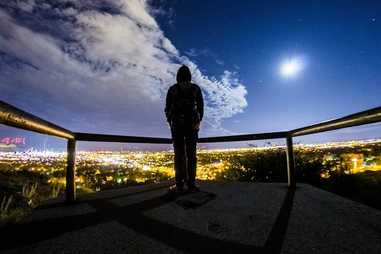 It's still Christmastide (the Christmas season also known as the Twelve Days of Christmas). And I'm curious how the celebration of the New Year and that of Epiphany (the culmination of Christmastide which happens on the 6th) go together. What conversation is provoked as I consider both? It's popular with the former to make "New Year's Resolutions" or in more recent years to choose a word (or allow a word to choose you!) for the year. With the latter, the Greek meaning of Epiphany has to do with "manifestation or appearance." Historically, liturgical churches (those whose communal worship is structured by the Christian/Church calendar year) celebrate two biblical stories of God and God's work made manifest through Jesus. The first story accounts for Epiphany also being called Three Kings' Day. These learned wise men (aka Magi), who studied the sky and nature's revelations, journey from their own country after a star appears indicating the birth of the King of the Jews. Noting the importance of such an incarnation, they follow the bright light which leads them to Jesus, whom they bow down and worship, offering gifts of gold, frankincense and myrhh, before returning to their own country (Matthew 2:1-12). The second story is Jesus' baptism in the Jordan River by John (Matthew 3:13-16, Mark 1:9-11, Luke 3:21-23). During this event, the triune God manifests--the Spirit descends like a dove and the Father's voice from heaven declares that this is His beloved Son. The baptism affirms Jesus' identity as well as initiates His work of making manifest the Kingdom of God in the world. Good news...it's not just Jesus' story, it's ours too! We're not only invited, we are a part of the conversation. Each of us is a "word made flesh" (invoking the description of Jesus in John 1:14). Poet and philosopher David Whyte says, "It's really quite remarkable that each of us is a conversation which will never ever appear again." Indeed, our appearance on the planet is miraculous. Every one of us offers a unique "face of God" incarnated to do good works which God has prepared in advance for us to do (Ephesians 2:10). The first week of the New Year is one of those times in our calendar year naturally provoking conversation. We get to consider the conversation we are and the one we're having with the world. It's a time when we're more apt to ponder life and its bigger questions, "Who am I?" "What have I been created to do?" "What word is God wanting to manifest through me?" "What do I really desire?" "What am I offering the world?" "What will I add or let go of this year?" "What conversations do I need to stop/start having?" "What journey am I to embark on or to courageously continue?" Do one of the questions grab your attention or is there another you'd like to add to the conversation? Perhaps you have been like me, sometimes trying to manifest someone else's word or way of being in the world. I have been prone to especially do this in the spiritual life, feeling pressure to be or believe a certain way or do a certain practice. But Jesus' own subversive conversation with the world and his message of freedom continuously beckons me to my God-created truer self, both in being and doing. So I want to help us shed some spiritual expectations in the New Year. Over the next few weeks I'll share what I have traded or am in the midst of letting go of in order to be a more authentic conversation in and with the world. Happy New Year and Epiphany blessings, friends. First up next Tuesday: Trading Daily Quiet-time Guilt for Pots & Pans  Good News needs no finessing. If a Scripture leaves you guessing And a child is left asking No need for defense-tasking. Your heart knows goodness it's an expert at fruit-tasting. Two thousand years between us, something must be missing. What might writer and audience know that you are not now knowing? Are you familiar with Gehenna, theophagy or Roman laws for pack-carrying? No? Well in Scriptures that disturb you can be treasures well worth finding. Invite your mind to start questioning Text and culture begin searching Or follow some Pharisees when Jesus they were fearing And the Son of Man they began attacking For all the laws the Prince of Peace was breaking Literal interpretations the Lamb of God was violating Language of the heart Logos was speaking And the spirit of the law Emmanuel was teaching Thus orphans, widows and other outcasts came running Is it time to start digging, start seeking and knocking? For your heart knows Euangelion needs no further explaining. |
AuthorKasey is a scarf, ball and club juggling spiritual director just outside of Nashville, TN. Play helps her Type-A, Enneagram 1 personality relax, creating space for poetry and other words to emerge. She also likes playing with theological ideas like perichoresis, and all the ways we're invited into this Triune dance. Archives
January 2024
Categories
All
|
By clicking “Sign up for E-News” I consent to the collection and secure storage of this data as described in the Privacy Policy. The information provided on this form will be used to provide me with updates and marketing. I understand that I may modify or delete my data at any time.
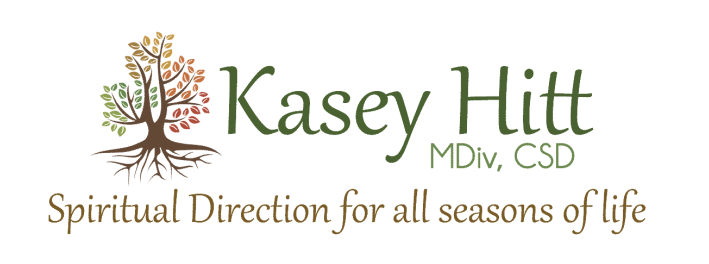
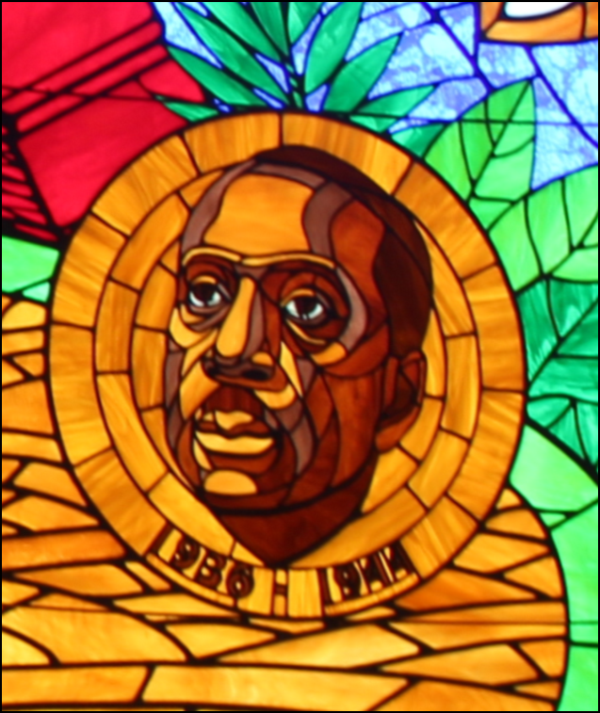
 RSS Feed
RSS Feed

